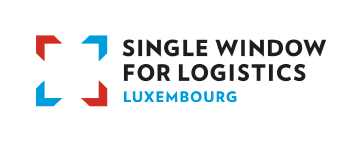Definition
The term plants designates living plants and living parts of plants including seeds and reproductive material.
For example: fruits, vegetables, tubers, bulbs, rhizomes, cut flowers, branches with leaves, leaves, live pollen, seeds, plants for planting.
The term plant products designates non-processed or simply processed products of plant origin.
For example: wood pallets and other wood packing materials are considered as plant products.
Cut or frozen fruits and vegetables are on the other hand not included in this definition: they are products of plant origin but have been substantially processed. They are considered as foodstuffs.
Obligations and controls
Plants and plant products can carry pests that could be harmful to other plants and plant products.
As part of international circulation of this type if goods, phytosanitary controls and verification of accompanying certificates are used to ensure that these goods are free from harmful pests. The goal is both to prevent the entry and distribution of such organisms in the territory of the European Union (EU) and to ensure the quality of European products.
According to European legislation, imports of plants and plant products must be registered in the TRACES.NT system.
Organic plants and plant products are subject to additional specific documentary control in addition to phytosanitary control.
Some fresh fruits and vegetables (non-frozen) may carry harmful pests. They are thus subject to phytosanitary controls. They are also considered as food products and thus are subject to food safety controls.
Cut or frozen fruits and vegetables are not subject to phytosanitary controls but only to food safety controls.
Related documents
Various documents accompany plants and plant products:
- at import and export, some plants and plant products require a phytosanitary certificate
- during movement within the European Union, some plants and plant products require a plant passport
- for the transport within the European Union in order to be exported to third countries, some plants and plant products required an intra-EU phytosanitary communication document
- only research centers are authorized to import potentially contaminated articles with a letter of authority
- plant species protected by the CITES convention need a CITES permit when imported and exported
- a non-GMO certificate may be requested to demonstrate the absence of Genetically Modified Organisms.
Related procedures
The following procedures, described on the Guichet.lu website, are used to request certificates from the Administration of Agricultural Technical Services (ASTA):
- request for a phytosanitary certificate for the export or re-export of plants, plant products and wood
- request for a plant passport for the transport of plants and plant products within the European Union
- request for an intra-EU phytosanitary communication document to transport plants and plant products within the European Union in order to export them to third countries
- request for a CITES permit for the import or export of protected plant species
- request for a letter of authority for the introduction or movement of plants and plant products for trials or scientific purposes.
The ASTA is responsible for the following controls related to these products:
- inspection at import of plants and plant products
- inspection at import of organic products
- inspection at export of plants and plant products
- quality control.
Related organizations
The Administration of Agricultural Technical Services (ASTA) is in charge of phytosanitary inspections and certificates as well as non-GMO certificates.
The ASTA is also responsible for specific inspections and certificates for seed potatoes.


